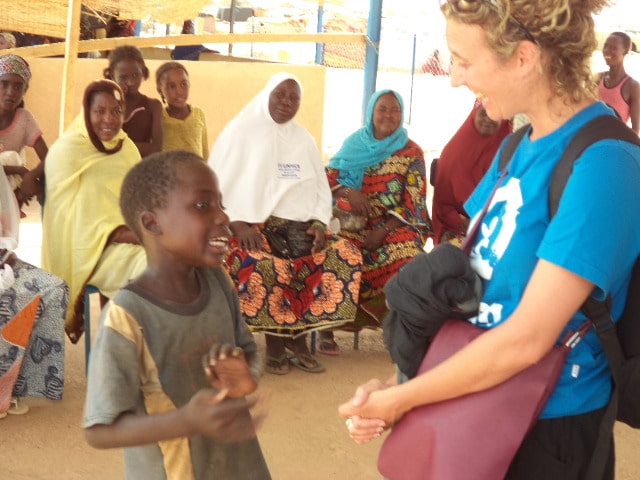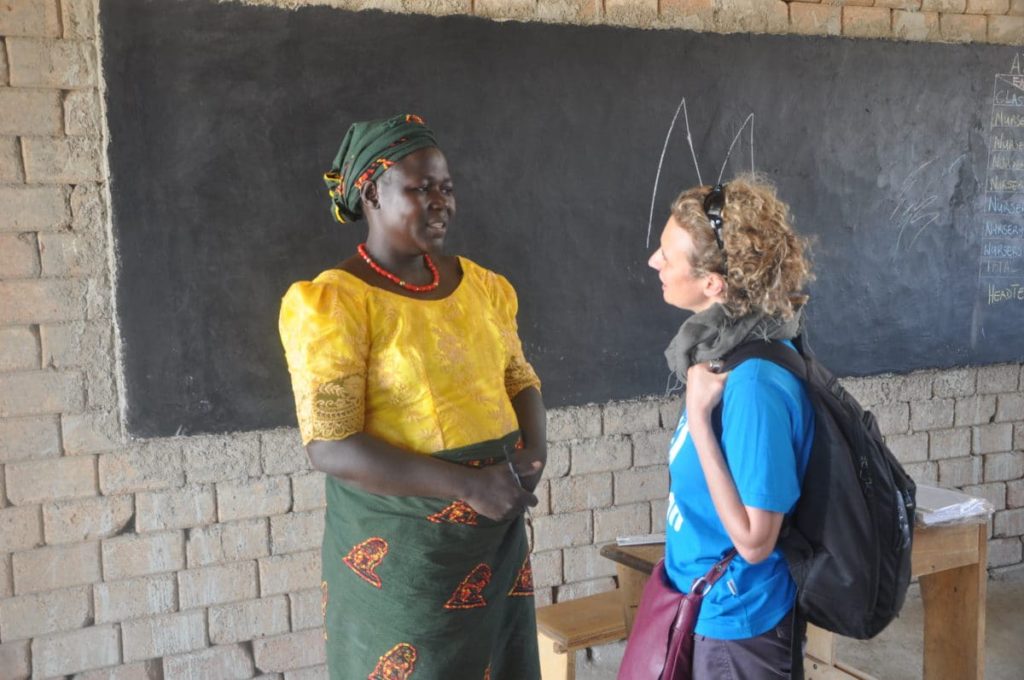Emilia Sorrentino an Education in Emergencies Specialist with Plan International, has been a humanitarian for more than ten years and has responded to crisis such as the conflicts in Mali and in Central African Republic, Typhoon Haiyan in the Philippines, the Earthquake in Nepal, lately the Rohingya Refugee Crisis in Bangladesh.
Ahead of the Global Partnership for Education conference which has gained support from the likes of Rihanna and Malala to encourage nations to fund education, Emilia tells of her experience on why education should be a priority when responding to a humanitarian crisis or emergency.

I have just returned from Cox’s Bazar, Bangladesh, where I was deployed to support the Rohingya Refugee crisis response.
While I was there I spoke with children, including older girls and boys 15-17 years old, and they told me told me they missed going to school. Despite all they have endured, these children have big dreams and want to be doctors and teachers when they grow up.
Many children are left on their own during the day as adult members of their family are busy trying to access aid.
We need to listen to what affected populations are telling us and prioritise the funding and provision of education in emergencies.
Often in times of crisis, families see child marriage as a way to cope with greater economic hardship and to protect girls from increased violence.
During my a trip to East Cameroon, which is hosting more than two hundred thousand refugees from Central African Republic, I met a refugee girl aged 12 who was enrolled in one of the camp’s school supported by Plan International. She was a brilliant student who lost both parents because of the war and whose grandparents, whom she was living with, wanted to marry her off to the Imam of the camp.
Thanks to the support of teachers and the joint action of Plan’s Education and Child protection teams, the marriage was prevented and the girl could continue her education.
Schools play an important role in helping to protect children from the wide range of dangers that can arise in situations of conflict and crisis.
The simple act of teachers’ monitoring children’s well-being and alerting community members if a child is distressed or in trouble can help mitigate some of the risks young people face.

In Boda, Central African Republic, where the Muslim community was forced to either leave or live in landlocked enclaves, education has played a crucial role to bring the two communities (Christian and Muslim) together again.
Thanks to education programmes some Muslim children are now able to go to school like any other children in the community. Aïcha Ali a student told me during a visit, “During the conflict I was separated from my friend Vanessa, with whom we grew up and went to school together. Now I can visit Vanessa and she too comes to my home as she wants so I am very happy.”
And last but not least;
Obtaining a quality education is a fundamental human right regardless of who you are or where you live. In emergencies, the world’s humanitarian response system supports affected people and protects their human rights. The right to education is firmly enshrined in international law. Ensuring that young people everywhere, regardless of their circumstances, can access an education of reasonable quality is important first and foremost because it is their human right.
I have seen first-hand how an education can change the outcome of a child’s life because without education what hope do we have of ending poverty, tackling climate change or achieving gender equality? Of advancing peace and security, innovating technologies and overcoming discrimination? Education provides children with the skills and knowledge they need to fulfil their potential.
Ireland needs to send a message loud and clear that we view education as a priority. In the past Irish Aid has demonstrated its dedication to education but in the six years this has decreased in terms of spend.
Ireland should increase its annual contribution to the Global Partnership of Education (GPE) fund from the current level of €4 million per annum. Ireland should show our dedication to education and set an example to other nations.